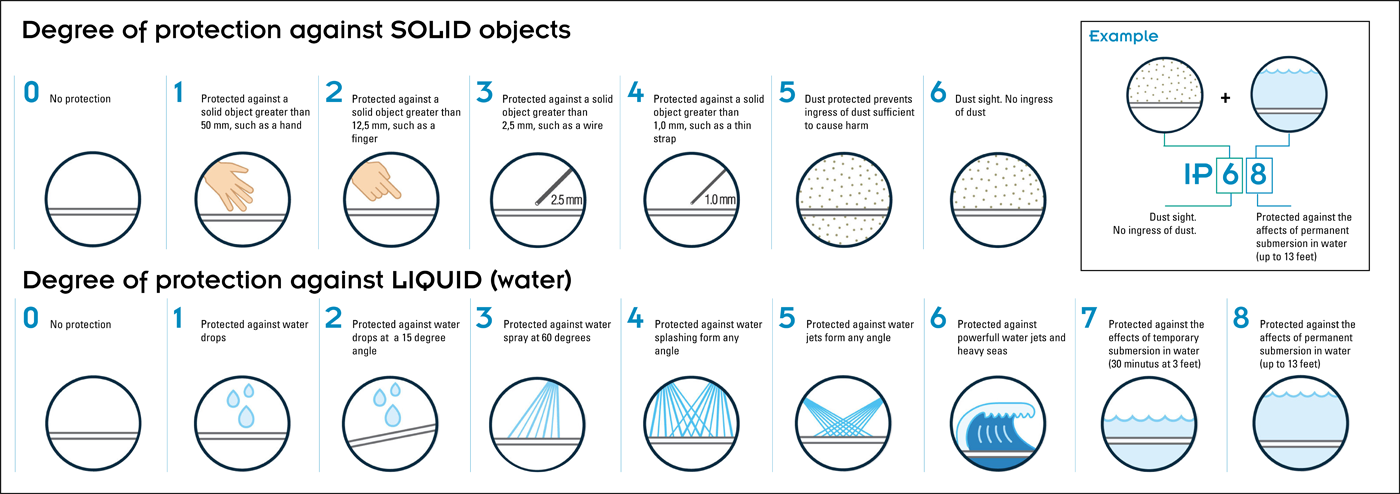IP rating at Man & Machine, Inc.
1. What is an IP rating?
An IP rating indicates the degree of protection of the electronic components against dust and water. An IP rating consists of two numbers. The first numeral refers to the protection against solid objects and is rated on a scale from 0 (no protection) to 6 (no ingress of dust). The second numeral rates the enclosure’s protection against liquids and uses a scale from 0 (no protection) to 9 (high-pressure hot water from different angles).

2. Which IP ratings apply to keyboards and mice?
Standard keyboards and mice typically are not IP rated. So called “washable” keyboards and mice typically do have an IP rating, and IP68 and IP65 ratings are the most common. Products with IP65 rating may be exposed to water projected by a nozzle from any direction. IP 68 products are suitable for continuous immersion in water.
3. Who developed the IP rating?
The IP rating system was developed in the seventies by the IEC. It was developed to rate and grade the resistance of enclosures of electric and electronic devices against the intrusion of dust and liquids. You can read more on the website of the IEC: https://www.iec.ch/ip-ratings
4. Do Man & Machine products have an IP rating?
All our keyboards and mice have an IP rating.
5. Does an IP rating say something about the durability of a product?
The IP rating system does not rate the durability of a product, or even the durability of the water resistance.
The testing conditions to be used to determine an IP rating are only to a limited degree determined by the IEC. A lot is left over to the manufacturer of the enclosed electronic device. Below video by CNBC explains what that means for water resistance rating: https://www.youtube.com/watch?v=4dyL6hMZvWQ&t=222s
6. Can products with an IP rating be disinfected?
An IP rating does not say anything about resistance to disinfectants. The chemicals used in medical and other hygiene sensitive environments to disinfect, typically based on alcohol or chlorine, are much more aggressive than water. A keyboard with an impressive IP68 rating may deteriorate quickly if it is not built for repetitive disinfecting.
7. Are products with an IP68 rating dishwasher proof?
An IP68 rating does not mean the product is dishwasher proof. As explained under point 5, the IP68 rating does not rate the durability of a product, or even the durability of the water resistance. Electronic products typically have a USB connector made of corrosive material. Although a USB cap can be used to protect this connector, repetitive exposure to the cleaning cycle of a dishwasher will eventually cause product failure.
8. Can products with an IP rating be sterilized?
An IP rating does not say anything about resistance to heat. Electronic components typically do not survive long when exposed to temperatures above 60 degrees. This is also why dishwasher or thermo-disinfector cleaning and disinfecting of a keyboard or mouse, let alone sterilizing at 134 degrees, is probably not a good idea.
9. Is the IP rating a medical standard?
An IP rating is not a medical standard and does not rate a keyboard or mouse to be fit for medical purpose.